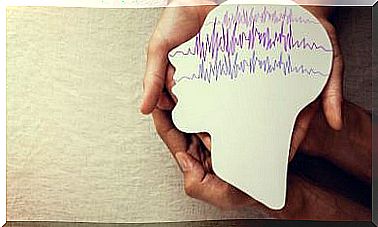Suspicions Of Infidelity: A Serious Impact On The Psychological Balance

This is a topic that is not talked about too much. There are many who have ever searched the Internet for “clues that your partner may be cheating on you.” However, the high mental exhaustion caused by mere suspicions of infidelity is not always addressed. Regardless of whether or not that concern is unfounded, that impact is more serious than we think.
There are those who, far from discussing the issue with their partner and addressing that concern, opt for silence and mental rottenness. They limit themselves only to paying attention to small aspects until they reach obsession and even paranoia. That anguish that constant thinking about betrayal provokes is the basis in many cases, both for anxiety disorders and for depression.
There is also another detail. Most of us may have experienced this sensation; It is normal and understandable to have a certain fear of losing that bond with the person you love. The problem, however, is that – on average – we handle such suspicions of treason very poorly. It is useless, for example, to share our concern with friends and not talk about it directly with the couple.
Nor is it healthy to keep the burning of that unease. Suspicion and suspicion should invite us to action, not to the passivity of someone who is limited to becoming even more trapped in the labyrinth of concern.

Psychological effects of suspected infidelity
We are not exaggerating if we affirm that the suspicion of infidelity is one of the highest sources of stress. It is much more than living with the fly behind your ear. It’s experiencing constant uncertainty, looping worry, and persistent anxiety.
You keep thinking that maybe our relationship is going to break up sooner or later or that we are simply being the victims of a lie.
Suddenly the brain processes a threat and we instantly go into a very high and exhausting state of alert and hypervigilance. So much so that very recent studies such as those carried out at the University of Nevada and the University of Ohio, for example, point us to something important. Suspicion of infidelity has a serious psychological impact so that mental health can be seriously affected.
We analyze it.
Transactional stress theory: when we feel unable to control a situation
Richard S. Lazarus was a prominent psychologist and researcher who spent much of his life trying to understand stress processes. We owe him, for example, the transactional theory of stress, which tells us about how a person interacts with a context and assesses the impact of what happens to him.
Thus, at times, the stress we experience exceeds our resources to cope with it and this aggravates the suffering itself. In addition, another fact arises and it is the awareness that we have no control over what is happening. In this way, suspicions of infidelity trace a type of reality over which one feels that he has no control.
If our partner is truly cheating on us, there is nothing we can do to avoid it and that feeling further increases the anguish.
The effect of suspected infidelity is different in men and women
The study from the universities of Nevada and Ohio cited above, and led by Daniel Weigel, indicate that there are gender differences when it comes to experiencing the impact of suspected infidelity. Although it is true that we all live it with great suffering, there are small peculiarities that differentiate us:
- Women tend to somatize much more. They experience headaches, muscle aches, exhaustion, digestive problems, loss of appetite or increased need to eat, etc.
- Both men and women experience insomnia.
- Men can also somatize, but they show more risky behaviors, such as drinking alcohol, resorting to drugs, showing poorly regulated behaviors such as showing greater behavioral or verbal aggressiveness, etc.
On the other hand, it is also common in both genders that it results in anxiety disorders and even depression.

What to do when I suspect that my partner is unfaithful?
We have already discussed the mental health effects of suspected infidelity. However, what to do if we find ourselves in these same circumstances? It is important to reflect on the following aspects.
Learn to handle suspicions of infidelity
First of all, let us be aware of something very simple: it is not good to feed worry without meaning or direction.
Opting for silence, constant suspicion and obsessive vigilance towards our partner only fuels the discomfort. If something worries us, it is put out loud, if we have a concern, it is shared.
- Let’s also avoid talking about our suspicions with friends or family. Spreading the fears sometimes further exacerbates the problem. Let’s start by talking to our partner.
- Let us also try to stop the daily diving for the smallest details in search of possible revelations. The best thing in all cases is to address that feeling of anguish directly.
- It is crucial that we foster a climate of trust and complicity from the beginning. Sincerity must be that nutrient that supports each situation. If we do not perceive it, if we sense more distance than closeness, we will make a decision.
- On the other hand, if the suspicions of infidelity are unfounded and there is no evidence of treason, it is time for some needed introspection. Where do my fears come from? Why do I feel insecure in my relationship?
Sometimes, factors such as low self-esteem subject the affective bond to that obsessive suspicion. The fear of abandonment is the constant shadow of those who do not love themselves or believe themselves worthy of being loved. Let’s think about it.
To conclude, few things can be more agonizing than coexisting with the shadows of suspicion of someone who believes that at the least they will be betrayed. Fears limit us. Let’s face these situations directly and always build relationships in which sincerity and trust flow at all times, that is the key.









